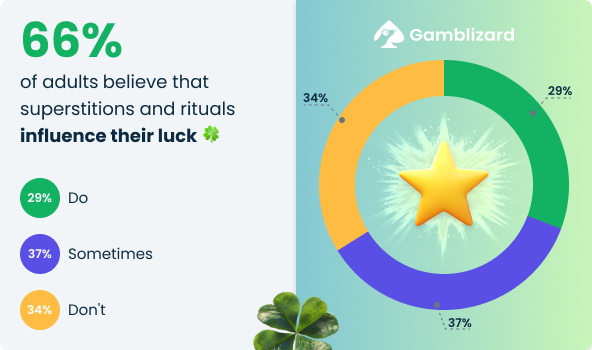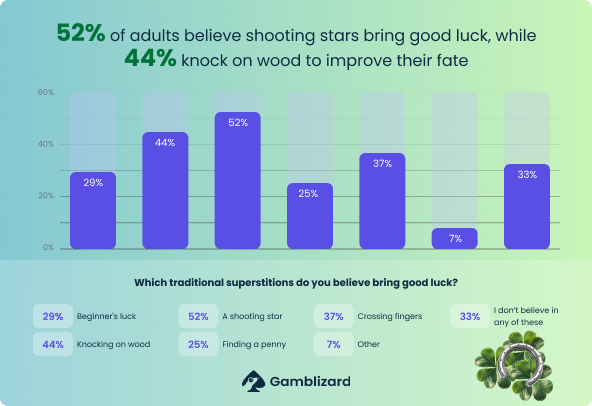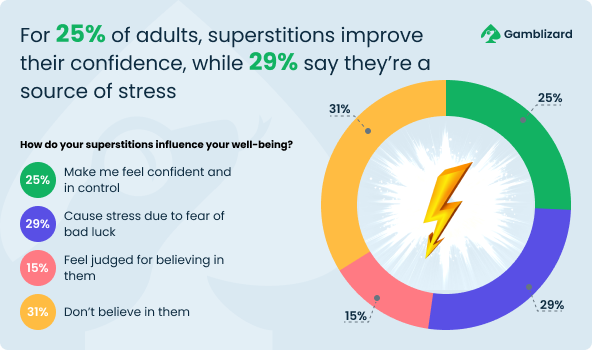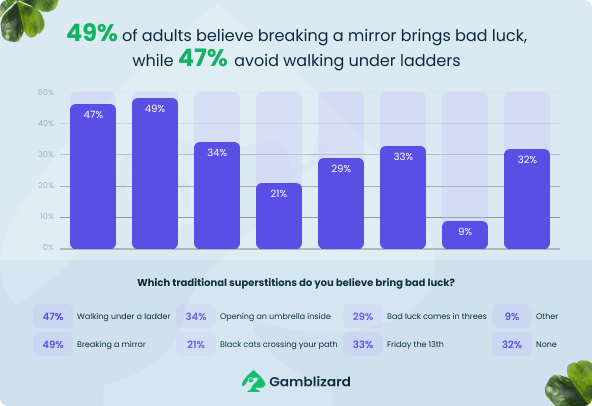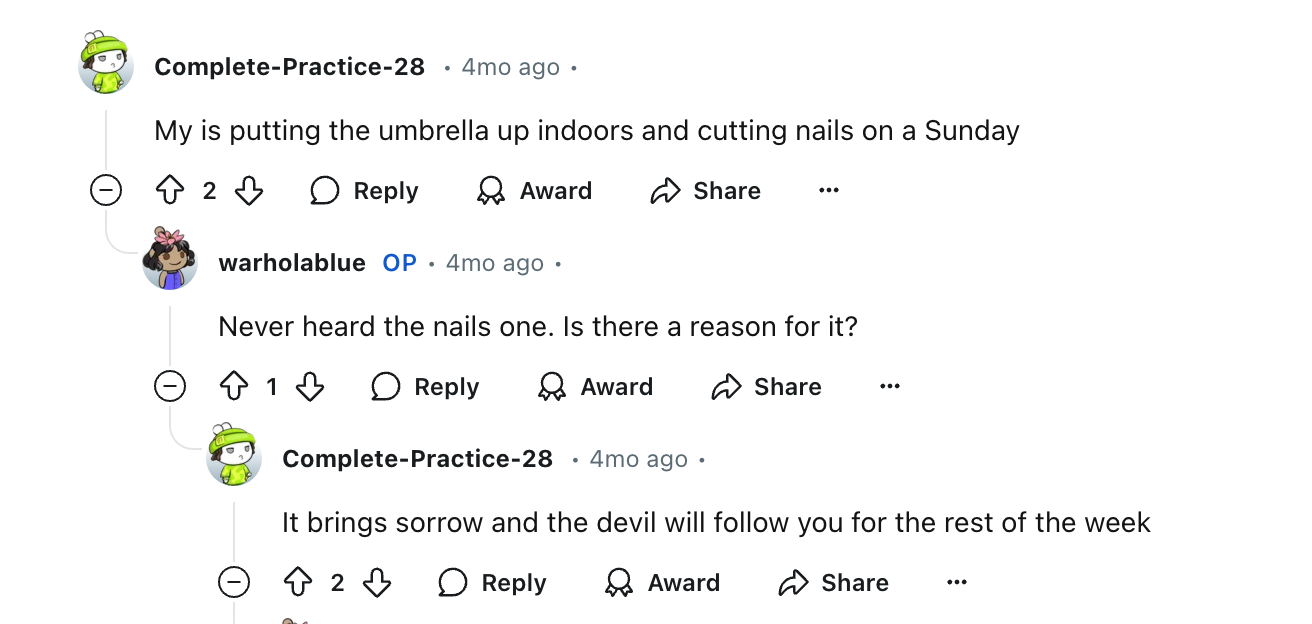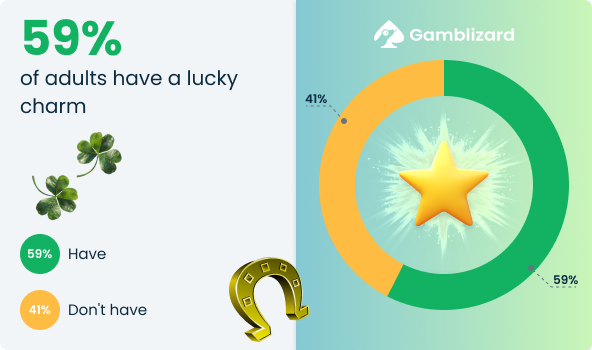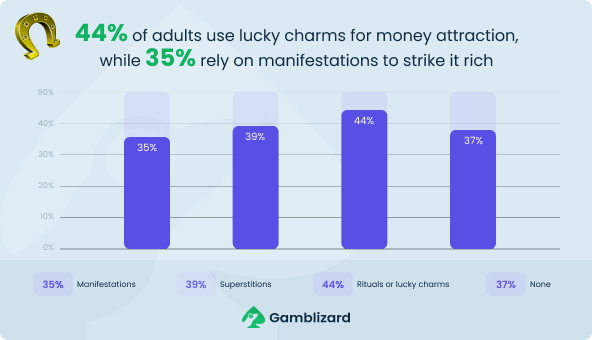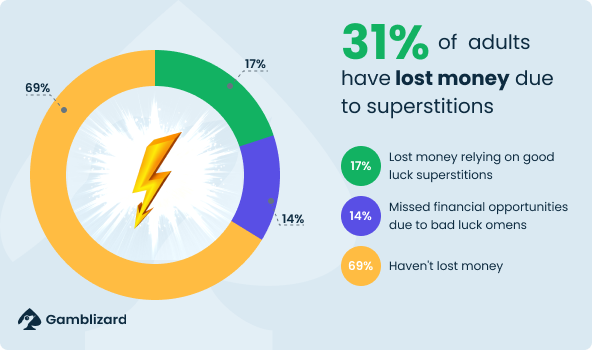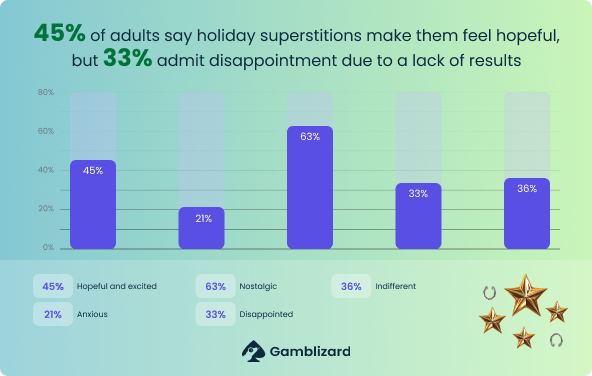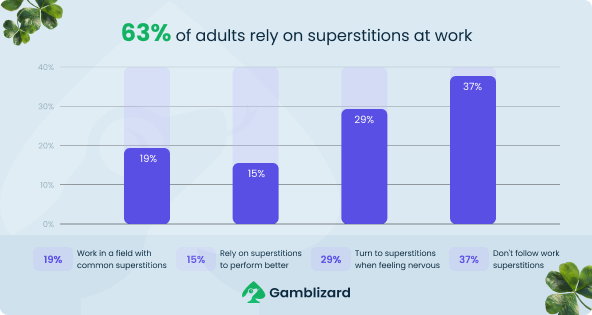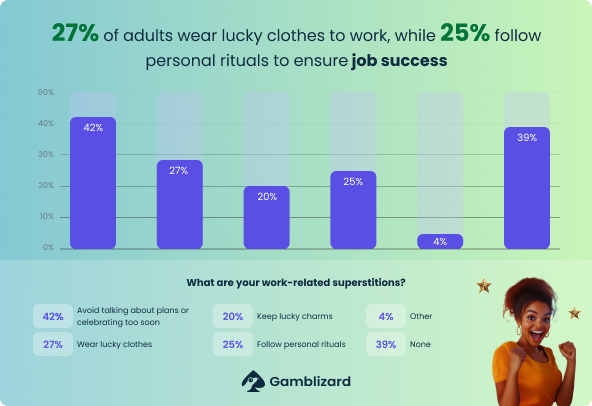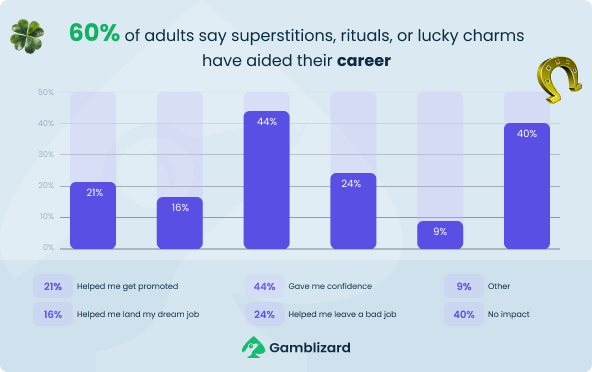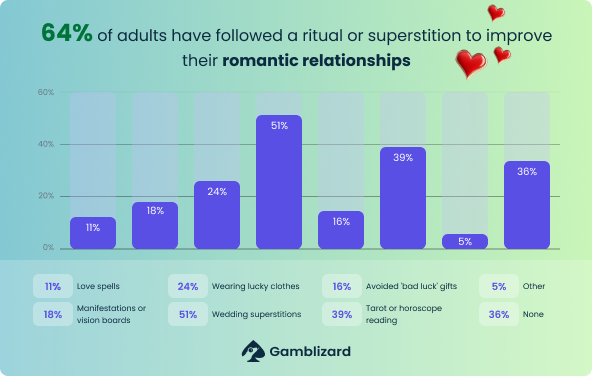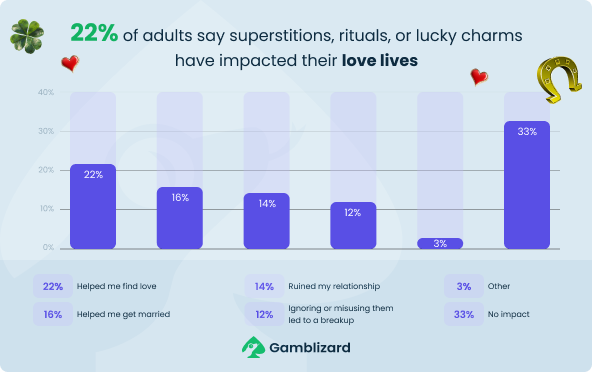Fate or folklore: How do Superstitions influence our life?
- Broken mirrors and lucky stars: Do people believe in superstitions?
- Lucky charms: Secret to good fortune
- Financial fates: The superstitions shaping finances
- Seasonal superstitions: The holiday traditions adults swear by
- Rituals for raises: Superstitions in the workplace
- Lucky in love: The superstitions stealing hearts
Key insights:
- 66% of adults believe that following superstitions can influence fate, with 52% stating shooting stars bring good luck and 44% knocking on wood to maintain positivity.
- Regarding success, 48% of people believe luck and fate have the most influence, ahead of hard work.
- 71% of respondents plan to follow New Year’s Eve superstitions, with financial prosperity and an improved love life the top two desires.
- 64% of people practice rituals to improve their romantic prospects, while 63% rely on superstitions at work.
For many, luck isn’t a random force entirely out of their control—it’s something they can influence through superstitions and rituals. Avoiding black cats, throwing salt over your shoulder, and staying home on Friday the 13th… These traditions may sound silly, but many swear by their ability to steer their fortunes.
Broken mirrors and lucky stars: Do people believe in superstitions?
Whether wearing their lucky socks or keeping their fingers crossed, 66% of respondents believe superstitions can sway fate in their favor.
When times get tough, many look to the skies for help. Some 52% believe that shooting stars bring good luck, while 44% knock on wood after making a positive statement. In the digital era, there are also new superstitions to follow, like seeing 11:11 on the clock.
Some 25% of people say that superstitions offer a confidence boost. For others, they bring stress instead, with 29% admitting these rituals weigh them down. Why? Because not all superstitions provide positivity and for believers, every black cat or opened umbrella is an opportunity for ill fortune to strike.
Regarding negative superstitions, 33% brace themselves for bad luck on Friday the 13th, while 47% avoid walking under ladders year-round. However, the superstition that strikes the most fear is breaking a mirror—believed to bring seven years of bad luck—which 49% fear. However, some don’t stop at traditional superstitions, adopting more specific and unusual beliefs from their social circles.
Lucky charms: Secret to good fortune
For many, fate isn’t written in the stars but held in the palm. Whether it’s a rabbit’s foot, an old coin, or even a pet, 59% of people own lucky charms, which they believe possess the power of good fortune.

If not an old keepsake, people turn to numerology for a little luck. Whether it’s the iconic number seven, their child’s birthday, or the number on their favorite athlete’s shirt, 64% of adults have a lucky number.
Financial fates: The superstitions shaping finances
Go to school, work hard, and success will follow. That’s the saying, but is grit really what sets the top 1% apart? According to 48% of respondents, effort comes second to fate. To them, if you’re not supposed to reach the top, you won’t—no matter how much you work for it.
Believing the road to riches is paved with more than just hard work, many people try every potential route to financial success. Some 44% turn to rituals or lucky charms, 39% follow superstitions, and 35% rely on manifestations to summon prosperity.

And sometimes, luck delivers. According to 35% of respondents, they’ve pocketed money after following a superstition or ritual, with 14% claiming they’ve struck it lucky multiple times. For 31%, however, good luck remains elusive—but that hasn’t stopped them from holding on to their superstitious beliefs.
For every winner, there’s a loser. While superstitions have handed many people an advantage, 31% feel fate dealt them a bad hand. Some 17% admit they have lost money chasing good luck superstitions, while 14% say they’ve shied away from golden opportunities fearing bad luck might cost them.
Seasonal superstitions: The holiday traditions adults swear by
As the clock strikes midnight, people turn to long-standing superstitions in the hopes of shaping their fortunes for the year ahead.
Financial well-being tops the list, with 41% clearing their debt to ensure a successful year and 31% tucking into black-eyed peas and collard greens seeking prosperity.
Love isn’t far behind—39% kiss at midnight to ensure a year full of romance, while 19% wear red underwear to find love.
Holiday superstitions largely capture the spirit of the season, with 45% of respondents feeling hopeful and excited, and 63% embracing a sense of nostalgia. Yet, not every tradition brings cheer—21% admit to feeling anxiety as they wait for their holiday rituals to work, while 33% face disappointment when their desires don’t come true.
Rituals for raises: Superstitions in the workplace
When you need a helping hand at work, who do you call? Your boss? A colleague? Lady Luck. Some 63% of respondents state they lean on superstitions at work, with 29% turning to traditions to calm their nerves and 15% using superstitions to aid their performance.
When it comes to workplace superstitions, 27% wear lucky clothes to work, 20% keep a lucky charm close at hand, and 25% follow personal rituals. But the most sacred rule? Silence. Discussing plans or celebrating too soon is a major taboo for 42% of superstitious workers, like never saying the “Q” word in the hospital.

For 60% of adults, it pays to be superstitious. Some 44% of workers admit these rituals give them confidence in their careers, with 21% having gained a promotion and 16% having landed their dream job.
Lucky in love: The superstitions stealing hearts
They say love comes when you least expect it, but most people aren’t willing to leave it all to fate—64% admit they have practiced a ritual or followed a superstition to improve their romantic prospects. From wearing lucky clothes on first dates (24%) to seeking tarot readings (39%), and even casting love spells (11%), they’re willing to try almost anything to capture the heart of their crush.
For many, luck and love go hand in hand—38% say superstitions helped them find love or get married.
However, not all experiences have a fairytale ending. Some 26% confess that the overuse of superstitions and rituals ultimately cost them their relationship.
